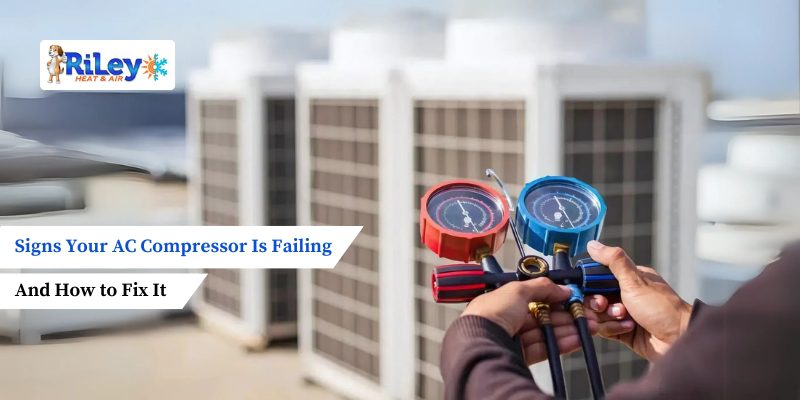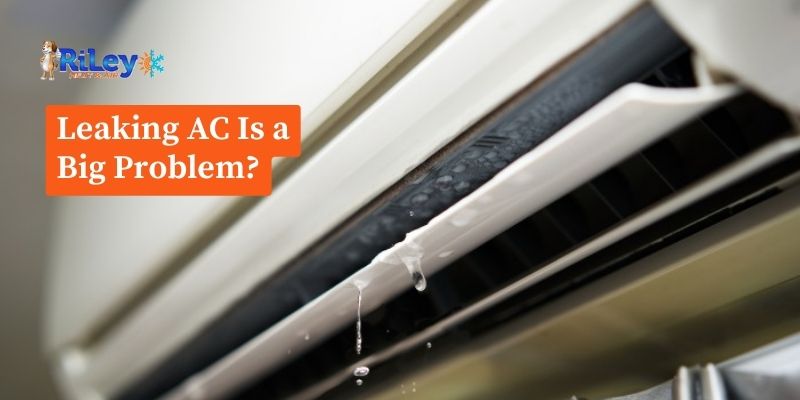
How Does Humidity Affect Your Air Conditioning System in Washington, DC?
Humidity levels in Washington, DC, can soar during the summer months, making it essential to understand how humidity impacts your air conditioning system's performance. Hydration can significantly affect your AC unit from decreased efficiency to potential damage. Here is a closer look at how humidity affects your air conditioning system in Washington, DC.
The Effect of Humidity on Your Air Conditioning System
1. Decreased Cooling Efficiency
High humidity levels make it feel hotter than it is by preventing sweat from evaporating off your skin, making you feel sticky and uncomfortable. Similarly, humidity affects your air conditioner's ability to cool your home efficiently. When humidity levels are high, your AC has to work harder to remove moisture from the air before it can effectively cool it. This added strain on the system can lead to decreased cooling efficiency and higher energy bills.
In Washington, DC, where summers are notoriously humid, this can pose a significant challenge for air conditioning systems. Residential air conditioning units may struggle to maintain comfortable indoor temperatures, especially during peak humidity. To combat this, it is essential to ensure your AC system is sized correctly and maintained to handle the high humidity levels typical of the region.
2. Increased Energy Consumption

Humidity affects your AC's cooling efficiency and increases its energy consumption. As your air conditioner works harder to remove moisture from the air, it requires more energy to operate, leading to higher utility bills. In humid climates like Washington, DC, this can substantially increase energy costs during the summer months.
To mitigate the impact of humidity on energy consumption, consider investing in a high-efficiency air conditioning system or implementing strategies to reduce indoor humidity levels. This may include using dehumidifiers with your AC system to remove excess moisture from the air. By reducing the workload on your air conditioner, you can lower your energy bills while maintaining comfortable indoor temperatures, even in the muggy Washington, DC, summer.
3. Strain on Air Conditioning Components
High humidity levels can strain various components of your air conditioning system. When the air is saturated with moisture, condensation can form on the evaporator coils and other system parts. Over time, this moisture can promote the growth of mold and mildew, which can clog the coils and reduce the system's efficiency.
Additionally, humidity can cause corrosion and rust to develop on metal components of your air conditioner, such as the condenser coils and electrical connections. If not addressed promptly, this corrosion can weaken the structural integrity of these parts and lead to premature failure.
It is crucial to schedule regular maintenance for your air conditioning system to mitigate the effects of humidity on its components. A qualified technician can clean and inspect your AC unit to remove mold, mildew, or corrosion and ensure all components function correctly. By addressing these issues early, you can prevent costly repairs and extend the lifespan of your air conditioning system.
4. Comfort and Indoor Air Quality
High humidity levels affect the cooling efficiency of your air conditioner and your comfort and indoor air quality. Excess moisture in the air can make your home feel clammy and uncomfortable, even if the temperature is set to a comfortable level. This can decrease indoor air quality as mold, mildew, and dust mites thrive in humid environments.
In addition to discomfort, high humidity levels can exacerbate respiratory issues and allergies, especially for sensitive individuals. Mold and mildew spores can become airborne, circulating through your home's ductwork and aggravating respiratory symptoms. Maintaining optimal indoor humidity levels is crucial for promoting a healthy and comfortable indoor environment in Washington, DC.
Consider using a whole-house dehumidifier with your air conditioning system to combat high humidity levels and maintain indoor comfort. These devices remove excess moisture from the air, keeping humidity levels within the ideal range for comfort and indoor air quality. By managing humidity effectively, you can create a more comfortable and healthier living environment for you and your family in Washington, DC.
5. Shortened Lifespan of Your Air Conditioner

Persistent exposure to high humidity levels can contribute to your air conditioning system's premature wear and tear, ultimately shortening its lifespan. The constant strain on the system, coupled with the potential for moisture-related damage, can lead to more frequent breakdowns and the need for costly repairs.
Components such as the compressor, condenser coils, and electrical connections are particularly vulnerable to damage from humidity. The buildup of moisture and condensation can corrode these parts over time, compromising their functionality and reliability. As a result, your air conditioner may require replacement sooner than expected if humidity-related issues are not addressed promptly.
To protect your investment and ensure the longevity of your air conditioning system in Washington, DC, it is essential to take proactive measures to combat humidity. This includes scheduling regular maintenance to detect and address any issues early and investing in equipment such as dehumidifiers to maintain optimal indoor humidity levels. By safeguarding your air conditioner against the damaging effects of humidity, you can enjoy reliable cooling comfort for years.
6. Impact on Environmental Comfort
High humidity levels not only affect your air conditioner's performance but also impact your overall environmental comfort. Excessive moisture in the air can create a breeding ground for pests such as dust mites, cockroaches, and mold, which thrive in humid environments. These pests can not only cause damage to your property but also pose health risks to you and your family.
Furthermore, humidity can exacerbate the discomfort caused by hot temperatures, leading to feelings of stickiness and fatigue. This can make relaxing and enjoying your indoor spaces challenging, particularly during the humid summers in Washington, DC. By controlling humidity levels with the help of your air conditioning system and additional measures such as dehumidifiers, you can create a more pleasant and comfortable indoor environment year-round.
Summary
Humidity significantly impacts your air conditioning system's efficiency, lifespan, and overall comfort in Washington, DC. Regular maintenance, proper sizing, and the use of dehumidifiers are essential for combating humidity-related issues. You can enjoy optimal cooling performance and indoor comfort throughout the year by addressing these challenges.
Tags :






